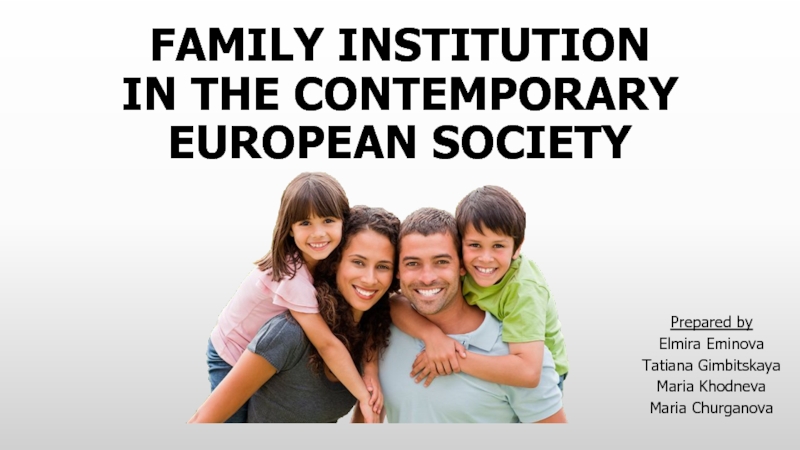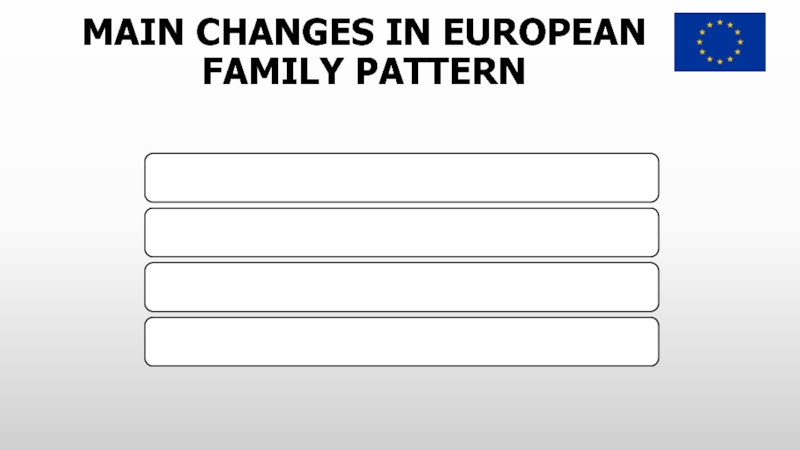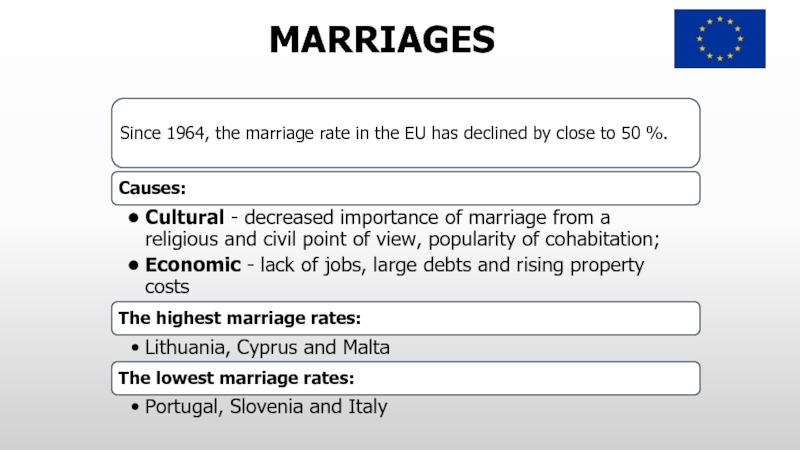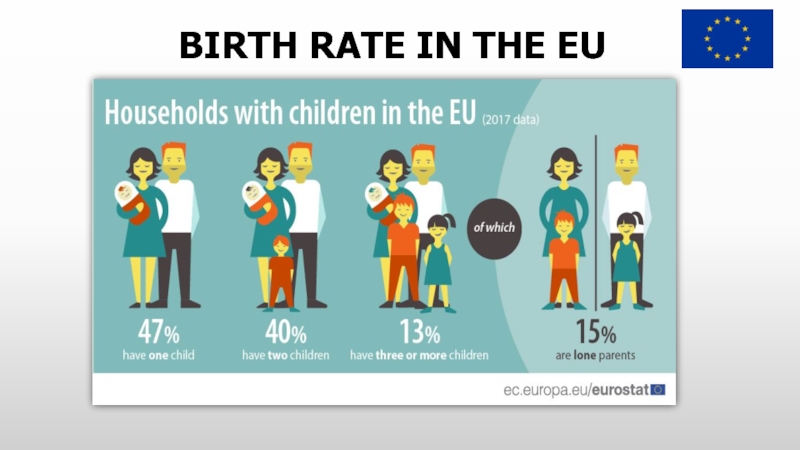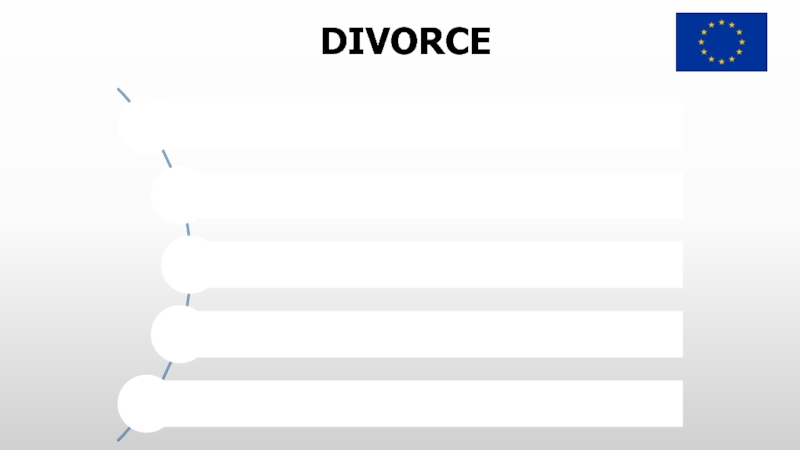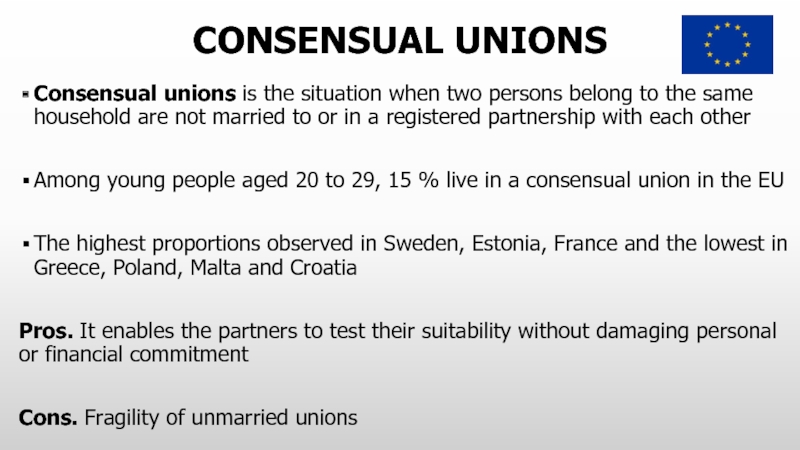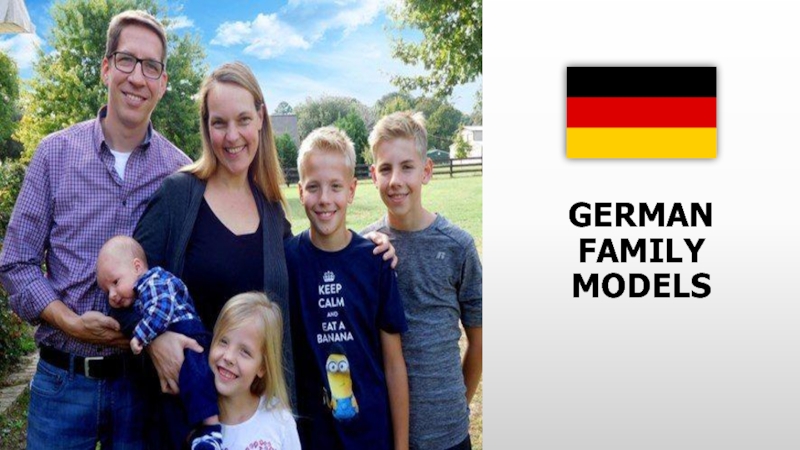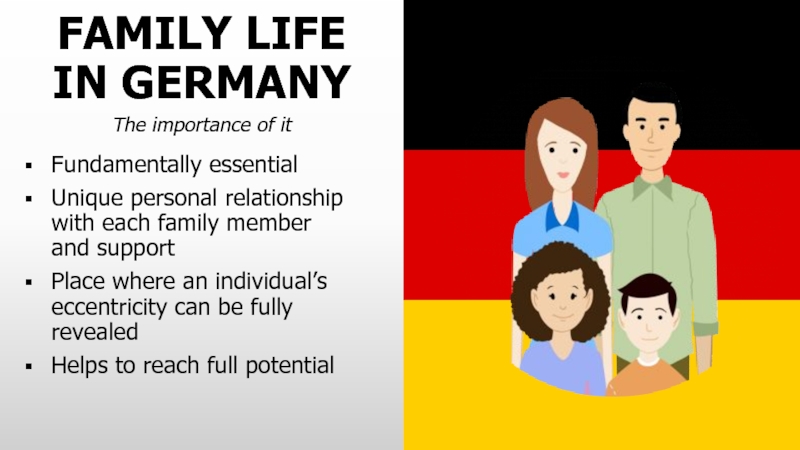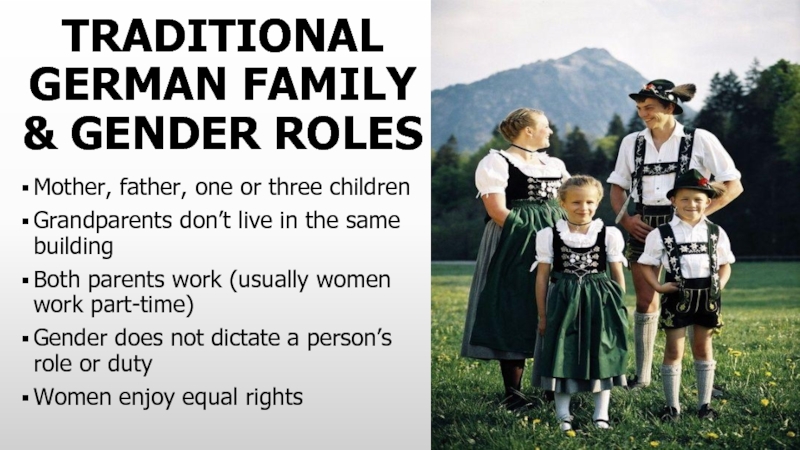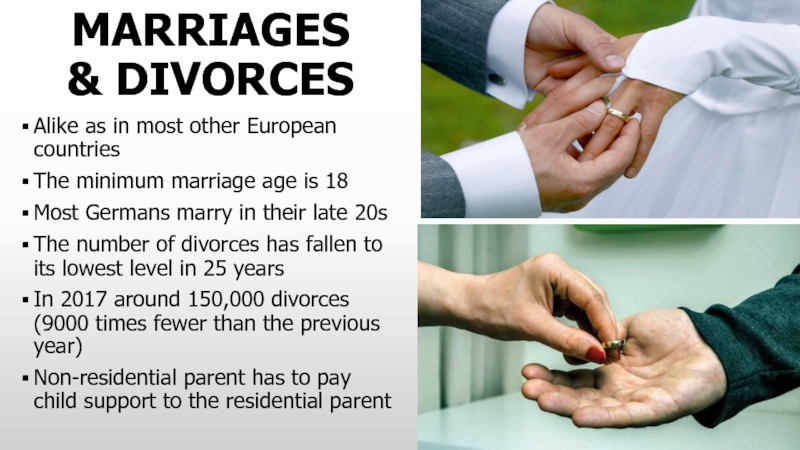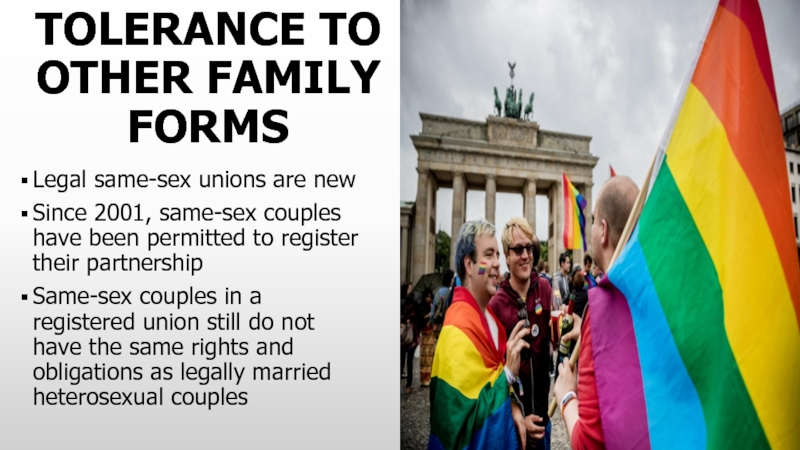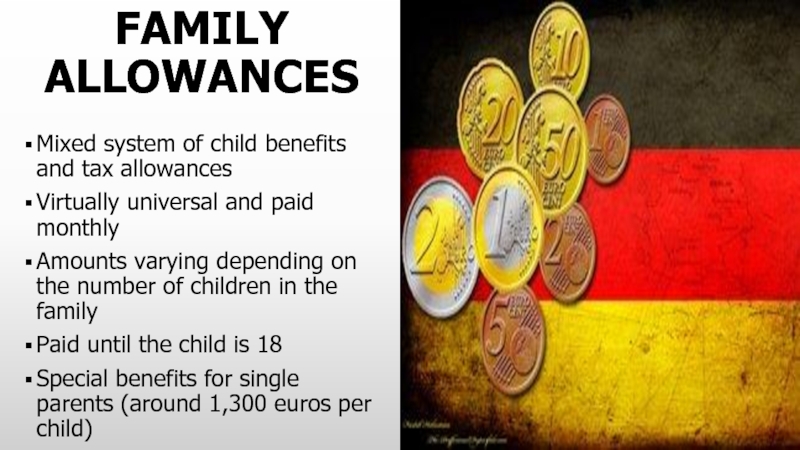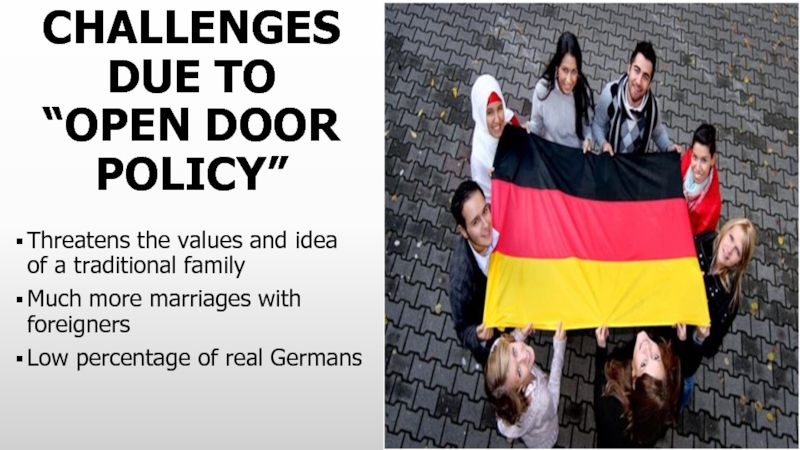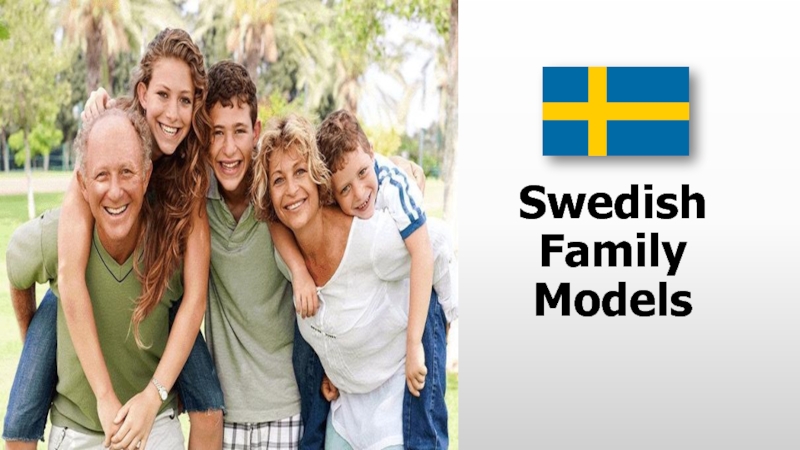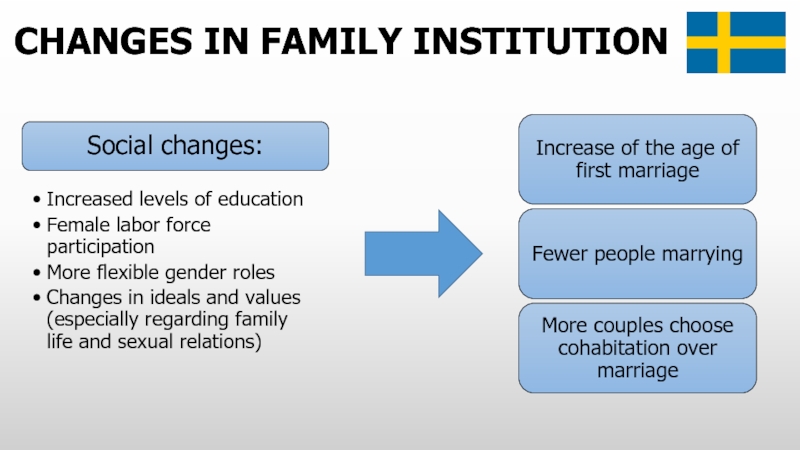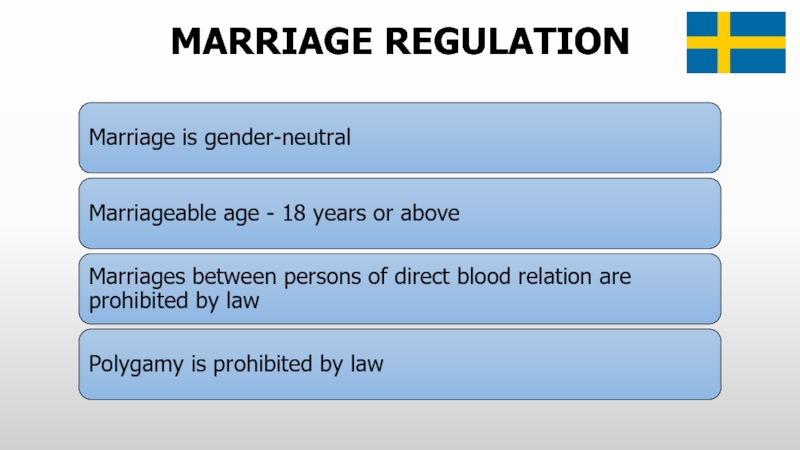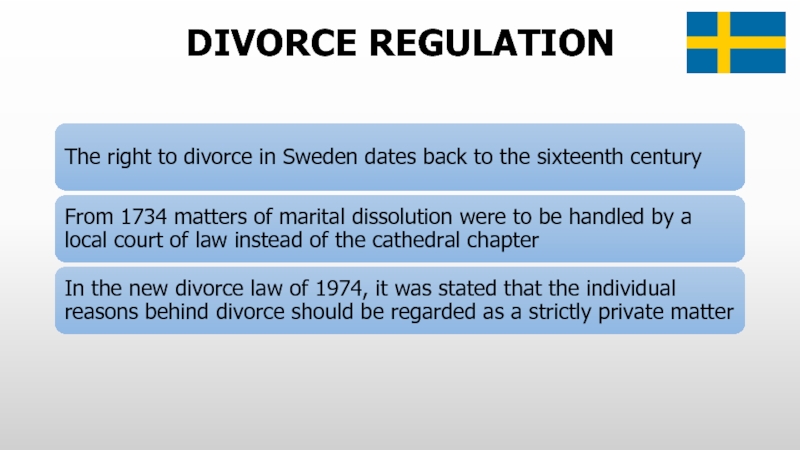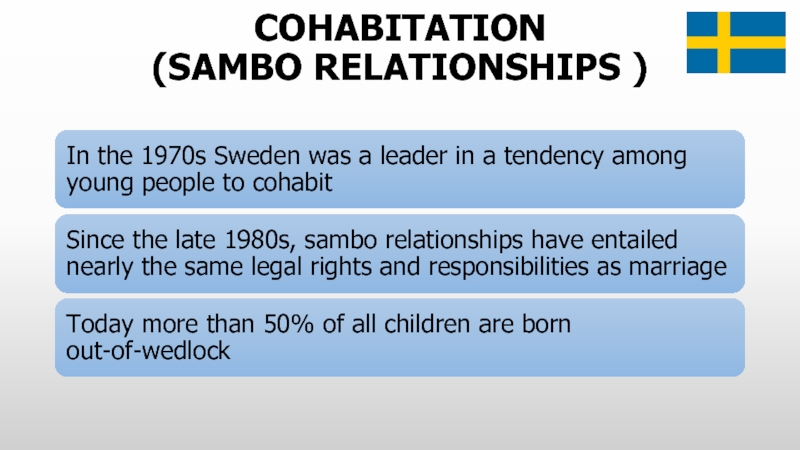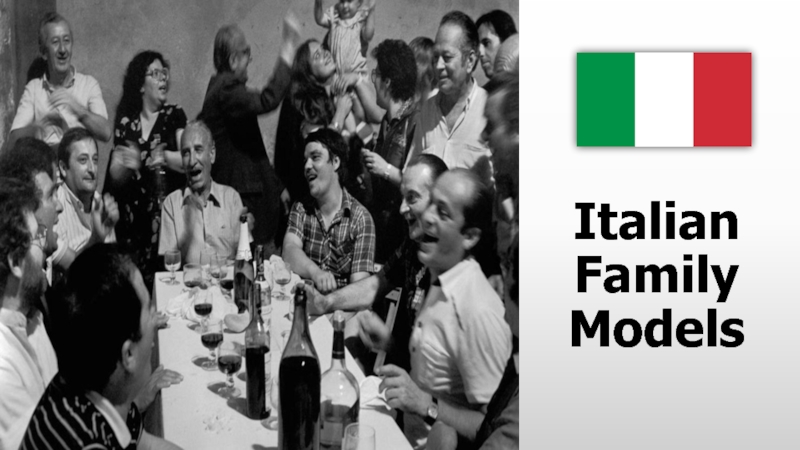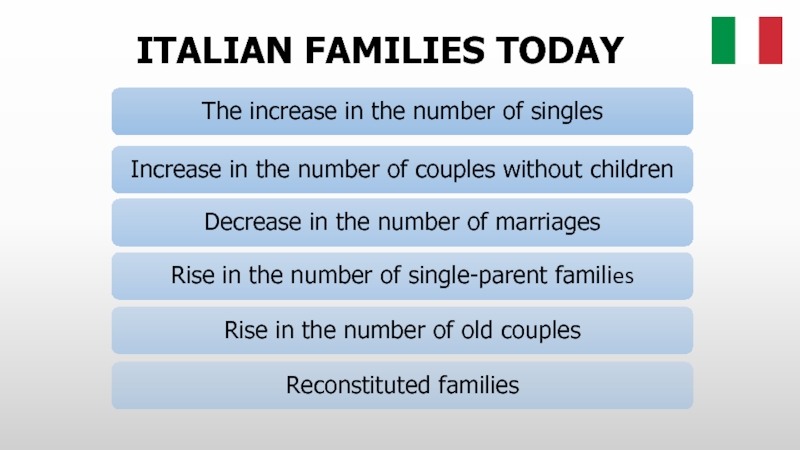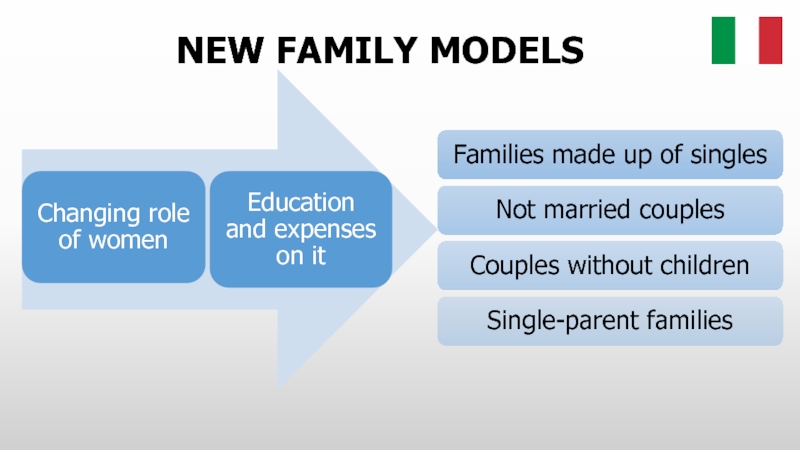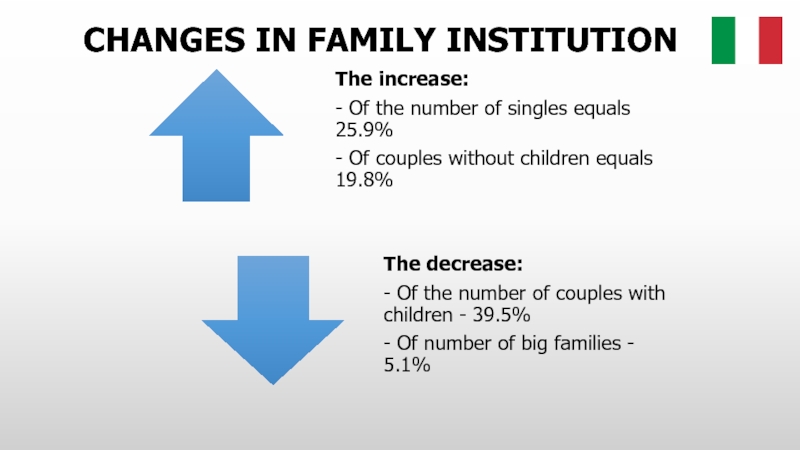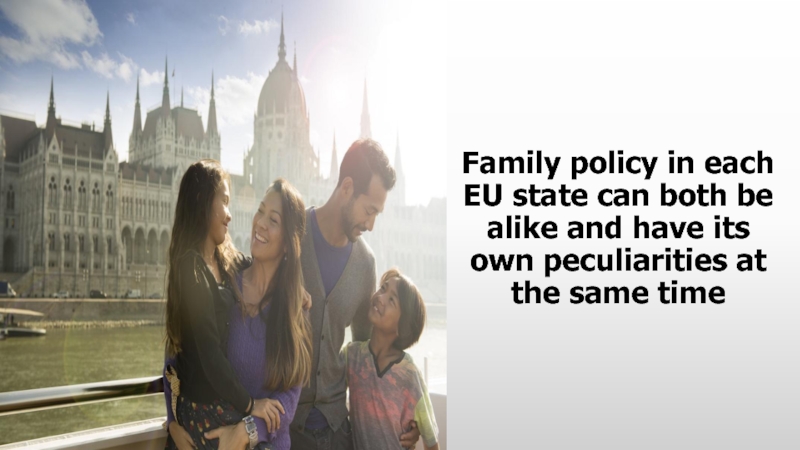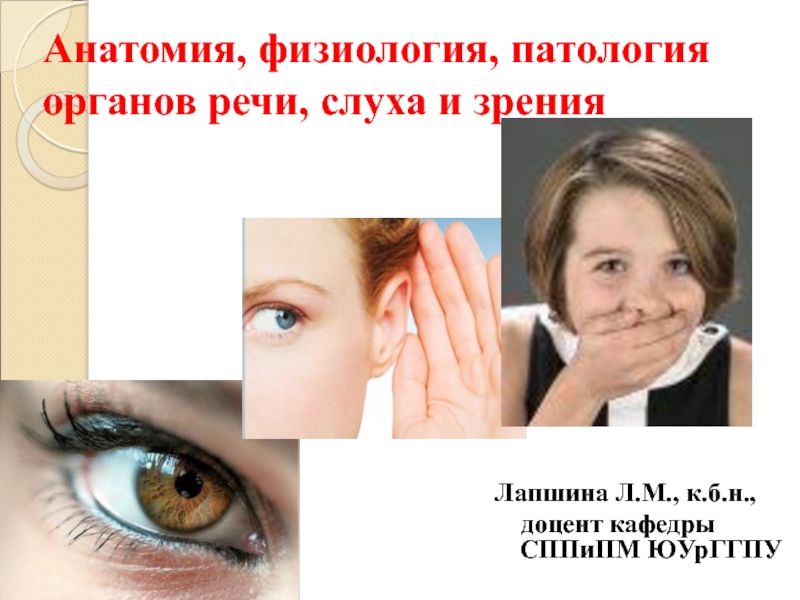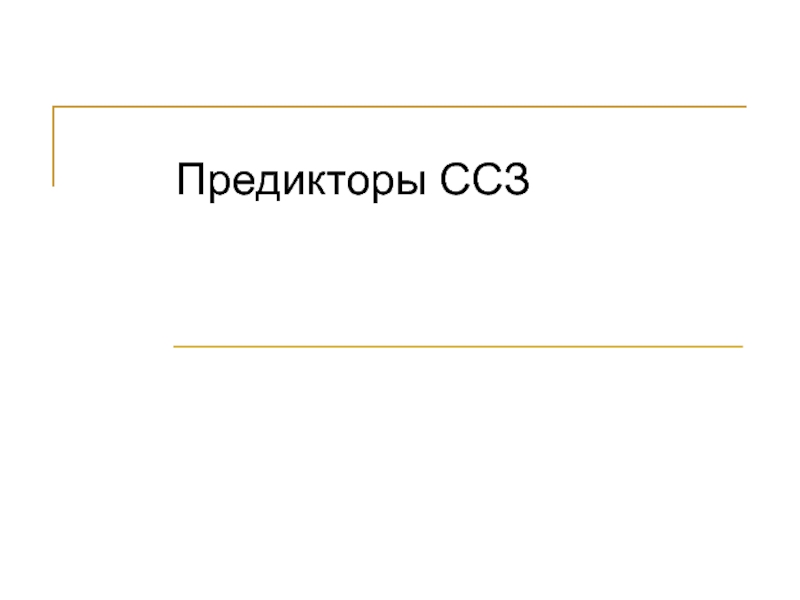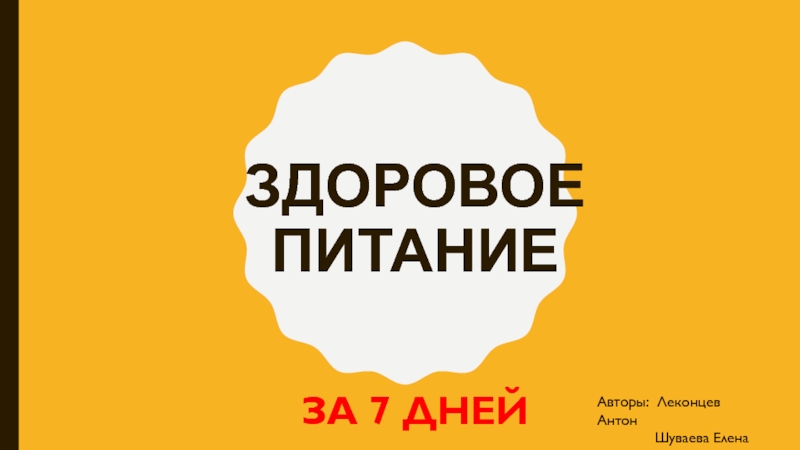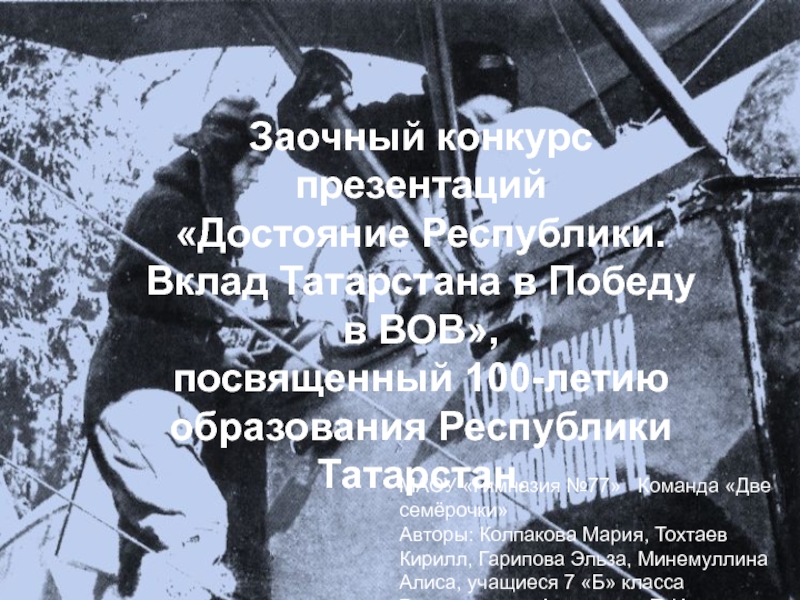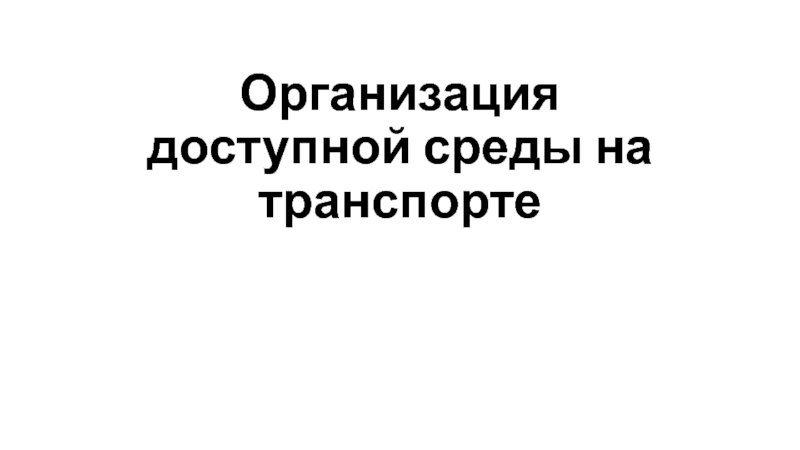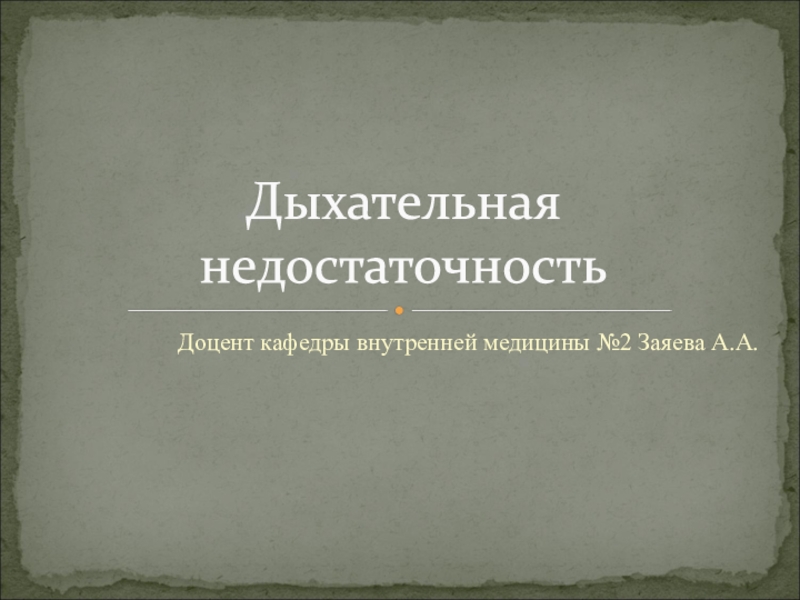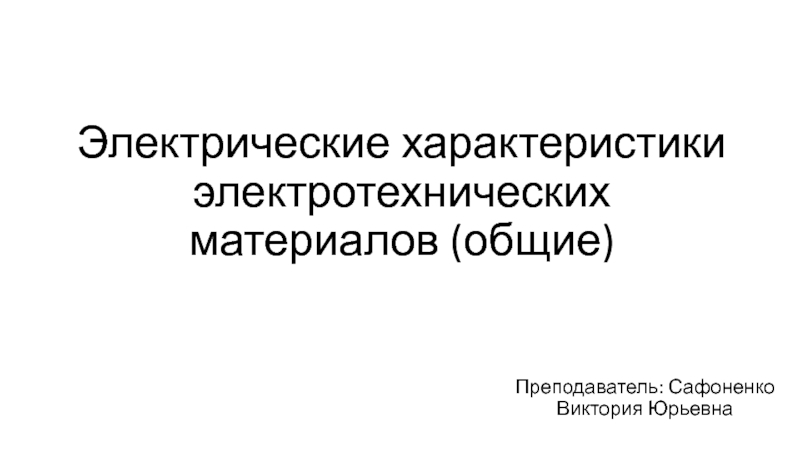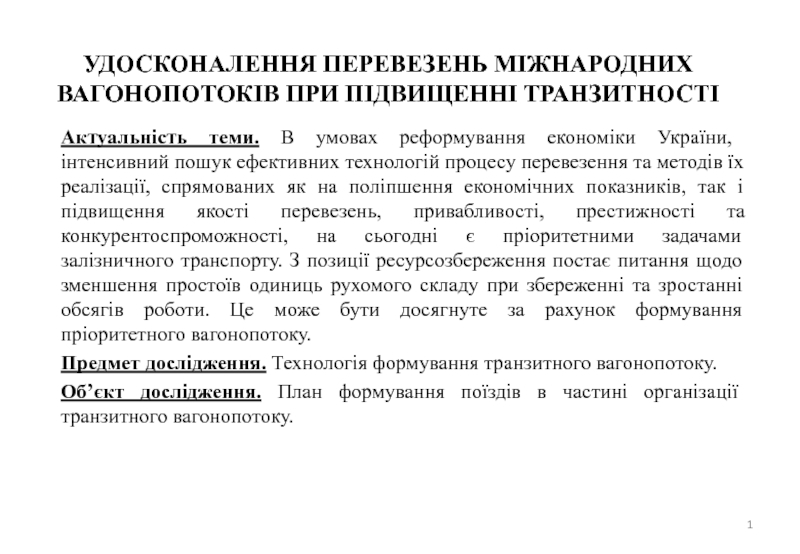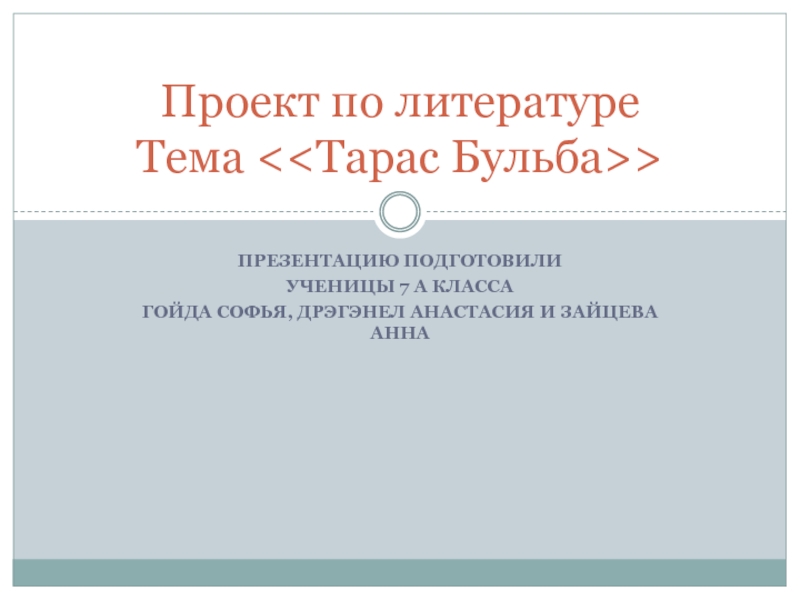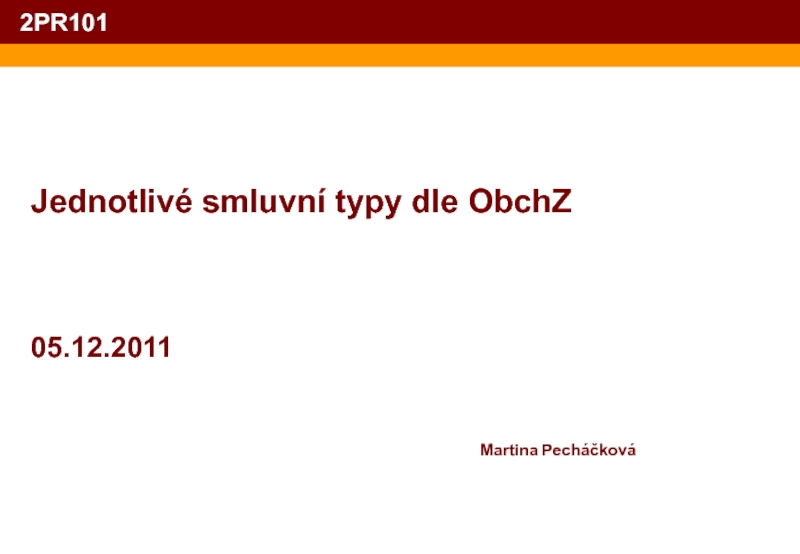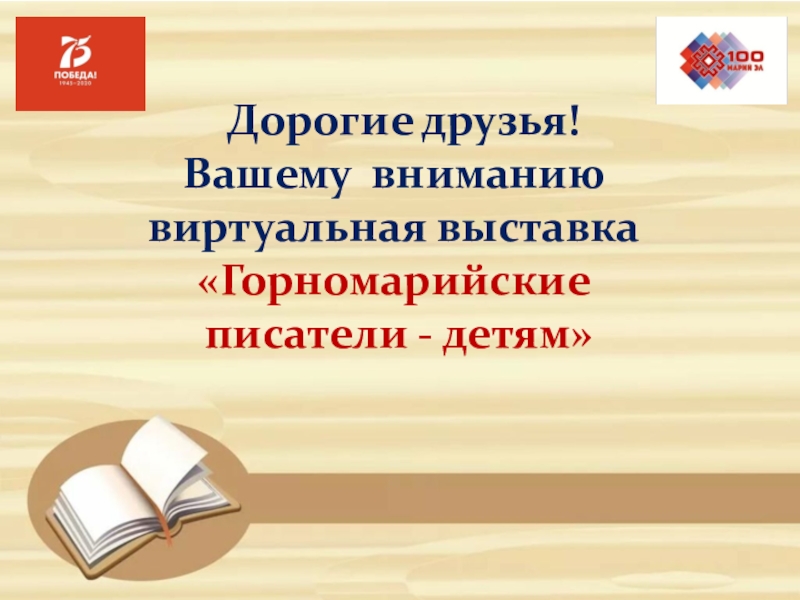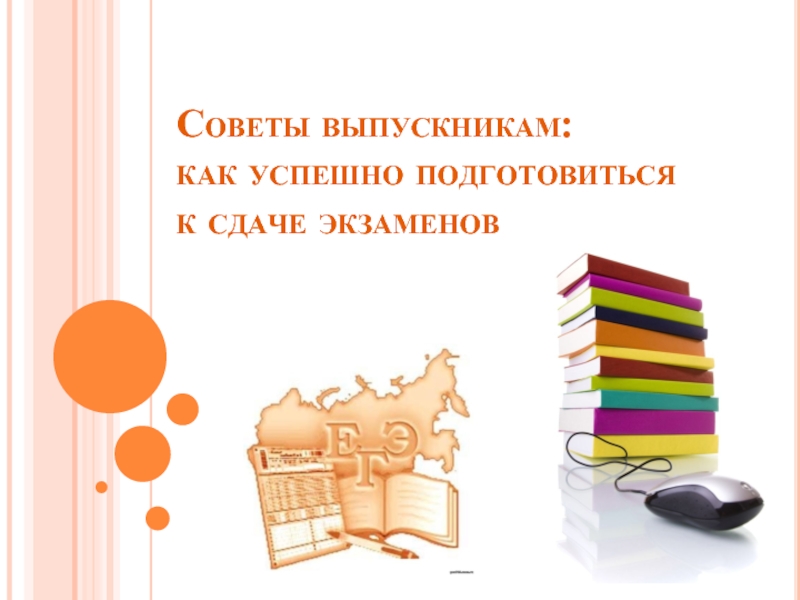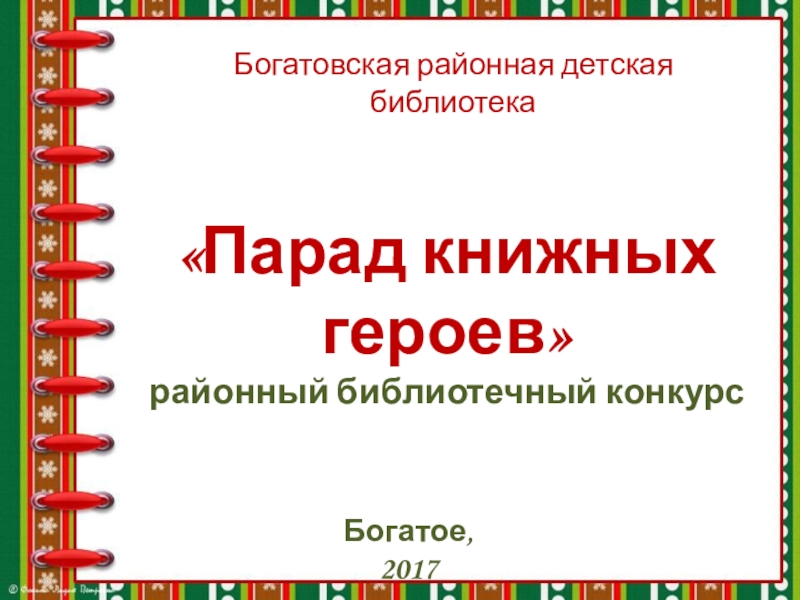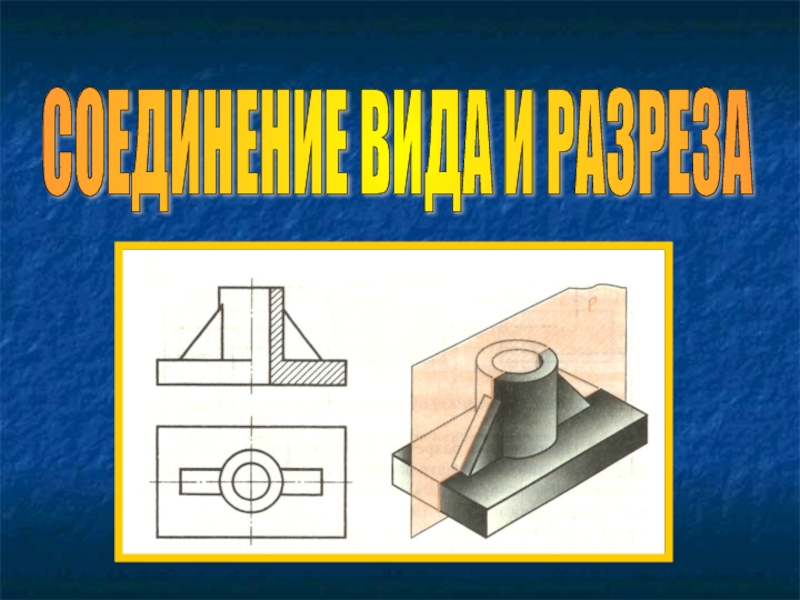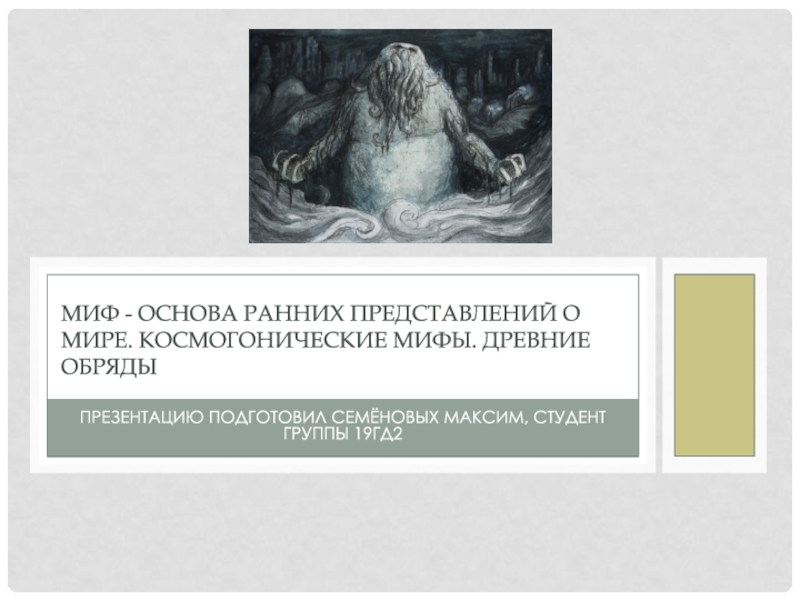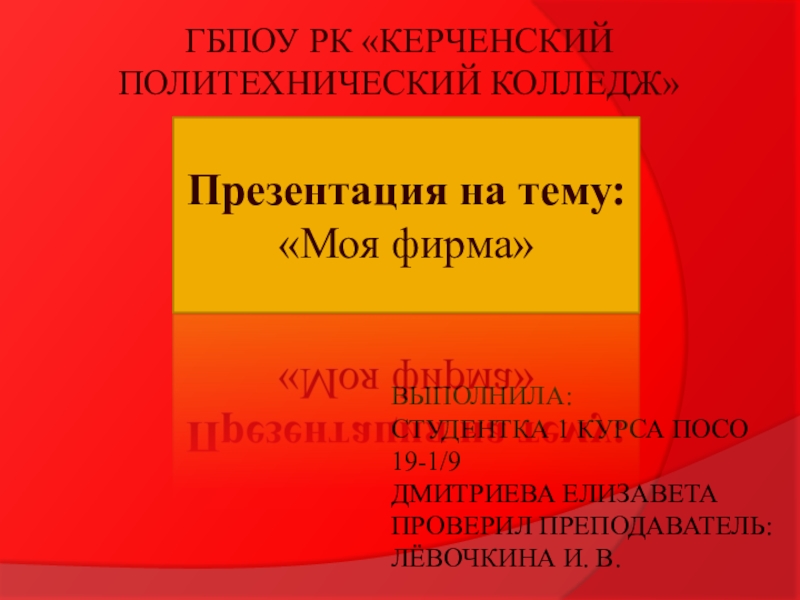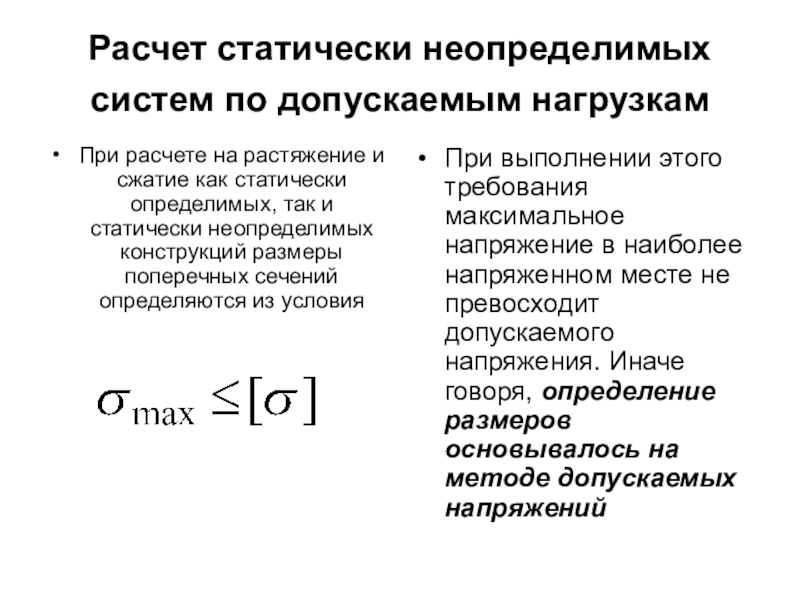Разделы презентаций
- Разное
- Английский язык
- Астрономия
- Алгебра
- Биология
- География
- Геометрия
- Детские презентации
- Информатика
- История
- Литература
- Математика
- Медицина
- Менеджмент
- Музыка
- МХК
- Немецкий язык
- ОБЖ
- Обществознание
- Окружающий мир
- Педагогика
- Русский язык
- Технология
- Физика
- Философия
- Химия
- Шаблоны, картинки для презентаций
- Экология
- Экономика
- Юриспруденция
FAMILY INSTITUTION IN THE CONTEMPORARY EUROPEAN SOCIETY
Содержание
- 1. FAMILY INSTITUTION IN THE CONTEMPORARY EUROPEAN SOCIETY
- 2. MAIN CHANGES IN EUROPEAN FAMILY PATTERN
- 3. MARRIAGES
- 4. BIRTH RATE IN THE EU
- 5. DIVORCE
- 6. CONSENSUAL UNIONSConsensual unions is the situation when
- 7. GERMAN FAMILY MODELS
- 8. FAMILY LIFE IN GERMANYFundamentally essential Unique
- 9. TRADITIONAL GERMAN FAMILY & GENDER ROLESMother,
- 10. MARRIAGES & DIVORCES Alike as in
- 11. TOLERANCE TO OTHER FAMILY FORMSLegal same-sex unions
- 12. FAMILY ALLOWANCESMixed system of child benefits and
- 13. CHALLENGES DUE TO “OPEN DOOR POLICY”
- 14. Swedish Family Models
- 15. CHANGES IN FAMILY INSTITUTION
- 16. MARRIAGE REGULATION
- 17. DIVORCE REGULATION
- 18. COHABITATION (SAMBO RELATIONSHIPS )
- 19. Italian Family Models
- 20. ITALIAN FAMILIES TODAY
- 21. NEW FAMILY MODELS
- 22. CHANGES IN FAMILY INSTITUTION
- 23. Family policy in each EU state can
- 24. Скачать презентанцию
MAIN CHANGES IN EUROPEAN FAMILY PATTERN
Слайды и текст этой презентации
Слайд 1FAMILY INSTITUTION
IN THE CONTEMPORARY EUROPEAN SOCIETY
Prepared by
Elmira Eminova
Tatiana Gimbitskaya
Слайд 6CONSENSUAL UNIONS
Consensual unions is the situation when two persons belong
to the same household are not married to or in
a registered partnership with each otherAmong young people aged 20 to 29, 15 % live in a consensual union in the EU
The highest proportions observed in Sweden, Estonia, France and the lowest in Greece, Poland, Malta and Croatia
Pros. It enables the partners to test their suitability without damaging personal or financial commitment
Cons. Fragility of unmarried unions
Слайд 8FAMILY LIFE
IN GERMANY
Fundamentally essential
Unique personal relationship with each
family member and support
Place where an individual’s eccentricity can be
fully revealedHelps to reach full potential
The importance of it
Слайд 9TRADITIONAL GERMAN FAMILY
& GENDER ROLES
Mother, father, one or three
children
Grandparents don’t live in the same building
Both parents work (usually
women work part-time)Gender does not dictate a person’s role or duty
Women enjoy equal rights
Слайд 10MARRIAGES
& DIVORCES
Alike as in most other European countries
The
minimum marriage age is 18
Most Germans marry in their late
20sThe number of divorces has fallen to its lowest level in 25 years
In 2017 around 150,000 divorces (9000 times fewer than the previous year)
Non-residential parent has to pay child support to the residential parent
Слайд 11TOLERANCE TO OTHER FAMILY FORMS
Legal same-sex unions are new
Since 2001,
same-sex couples have been permitted to register their partnership
Same-sex couples
in a registered union still do not have the same rights and obligations as legally married heterosexual couplesСлайд 12FAMILY ALLOWANCES
Mixed system of child benefits and tax allowances
Virtually universal
and paid monthly
Amounts varying depending on the number of children
in the familyPaid until the child is 18
Special benefits for single parents (around 1,300 euros per child)
